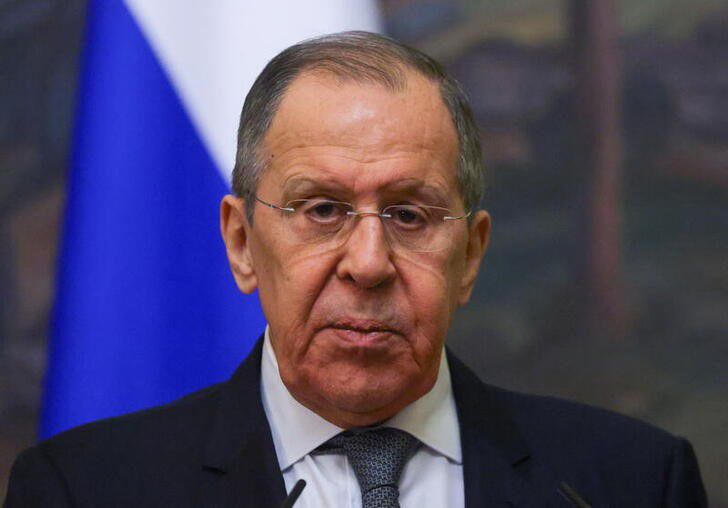
Amid growing threats from the Kremlin, NATO warned on Wednesday that Russia's war in Ukraine could lead to a nuclear confrontation between Moscow and the West.
“Russia must stop this dangerous and irresponsible nuclear rhetoric,” Atlantic Alliance Secretary General Jens Stoltenberg said at a press conference. But he clarified: “Let there be no doubt about our willingness to protect and defend allies against any threat at any time.”
“Russia must understand that it can never win a nuclear war,” he said on the eve of a summit of the national leaders of the Western military alliance in Brussels. “NATO is not part of the conflict... it provides support to Ukraine but it is not part of the conflict.”
Stoltenberg reiterated that NATO will not send troops to Ukraine: “It is extremely important to provide support to Ukraine and we are stepping up. But at the same time it is also extremely important to prevent this conflict from turning into a full-fledged war between NATO and Russia.”
Russian Foreign Minister Sergey Lavrov warned on Wednesday that sending peacekeepers to Ukraine could lead to a direct confrontation between Russia and the NATO.
Poland said last week that it would formally submit a proposal for a peacekeeping mission in Ukraine at the next NATO summit. But Lavrov considered Warsaw's peacemaking proposal a provocation.

“I hope you understand what you are talking about,” the Russian Foreign Minister told the staff and students of the Moscow State Institute of International Relations. He warned: “This will be the direct clash between the Russian and NATO armed forces that everyone has not only tried to avoid, but has said that in principle it should not take place.”
In addition to mentioning NATO's alleged plans to send to Ukraine a battalion composed of the three Baltic republics, he recalled that he had also opposed the deployment of an international force in the Donbass in due course.
He also denounced statements about the need to deploy Stinger anti-aircraft missiles in Ukraine, which, he warned, would pose “a colossal threat”.
Lavrov, in turn, accused the United States of being interested in extending “as long as possible” the current Russian “allied military operation” in Ukraine. “They hope to continue supplying arms to Ukraine. You see that they want to keep us as much as possible in a state of combat,” he said.
Amid fears of a possible nuclear war, Russia, far from easing tensions, continues to warn that this possibility is latent.
On Tuesday, Kremlin spokesman Dmitry Peskov argued that Russia will only use nuclear weapons in Ukraine if it faces an “existential threat.”
“We have a doctrine of internal security, and it is public, you can read in it all the reasons for the use of nuclear weapons,” he said in an interview with CNN International. He added: “If it is an existential threat to our country, then it can be used according to our doctrine.”
Russian President Vladimir Putin said late last month that his country's nuclear forces should be on high alert, raising fears that Russia's invasion of Ukraine could lead to nuclear war. US officials have said they have so far seen no reason to change Washington's nuclear alert levels.
On March 14, UN Secretary General Antonio Guterres described as a “chilling development” a hypothetical nuclear conflict between Russia and the West.
“The prospect of a nuclear conflict, once unthinkable, is now back within the realm of possibility,” he told reporters, repeating his call for an immediate cessation of hostilities.
With information from Reuters
Keep reading:
Últimas Noticias
Debanhi Escobar: they secured the motel where she was found lifeless in a cistern

The oldest person in the world died at the age of 119

Macabre find in CDMX: they left a body bagged and tied in a taxi
The eagles of America will face Manchester City in a duel of legends. Here are the details

Why is it good to bring dogs out to know the world when they are puppies




